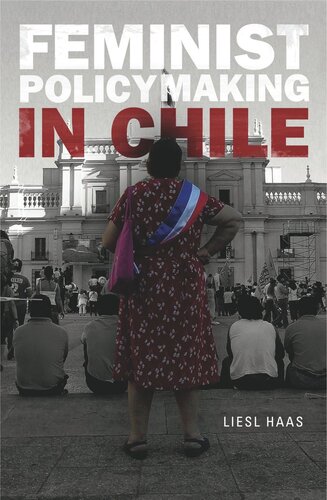

Most ebook files are in PDF format, so you can easily read them using various software such as Foxit Reader or directly on the Google Chrome browser.
Some ebook files are released by publishers in other formats such as .awz, .mobi, .epub, .fb2, etc. You may need to install specific software to read these formats on mobile/PC, such as Calibre.
Please read the tutorial at this link: https://ebookbell.com/faq
We offer FREE conversion to the popular formats you request; however, this may take some time. Therefore, right after payment, please email us, and we will try to provide the service as quickly as possible.
For some exceptional file formats or broken links (if any), please refrain from opening any disputes. Instead, email us first, and we will try to assist within a maximum of 6 hours.
EbookBell Team

4.7
106 reviewsThe election of Michelle Bachelet as president of Chile in 2006 gave new impetus to the struggle in that country for legislation to improve women’s rights and highlighted a process that had already been under way for some time. In Feminist Policymaking in Chile, Liesl Haas investigates the efforts of Chilean feminists to win policy reforms on a broad range of gender equity issues—from labor and marriage laws, to educational opportunities, to health and reproductive rights. Between 1990 and 2008, sixty-three bills were put forward in the Chilean legislature as a result of pressure brought by the feminist movement and its allies. Haas examines all these bills, identifying the conditions under which feminist policymaking was most likely to succeed. In doing so, she develops a predictive theory of policy success that is broadly applicable to other Latin American countries.